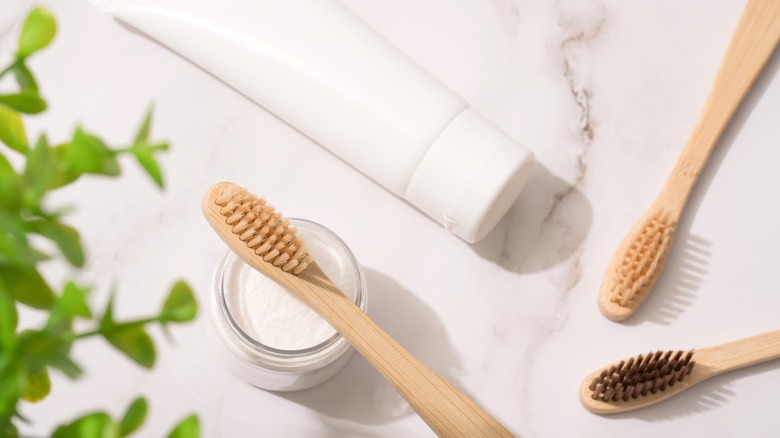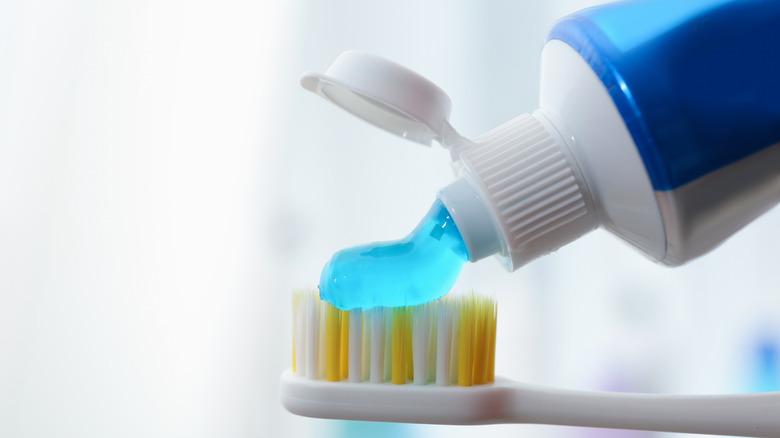What's The Difference Between Tooth Powder And Toothpaste?
When it's time to brush those pearly whites, most people likely reach for a tube of toothpaste. However, many people also use tooth powder, which is essentially powdered toothpaste. According to Advanced Dentistry of Blakeney, tooth powder is believed to be the earliest form of toothpaste, dating back to 5000 BC. At the time, tooth powder was made by ancient Egyptians using eggshells, ash, myrrh, and pumice. Because toothbrushes weren't invented yet, it's believed the Egyptians rubbed the tooth powder onto their teeth using their fingers. In addition to the Egyptians, the ancient Greeks, Romans, and Chinese also used tooth powder as part of their dental hygiene routine, but the ingredients varied. For example, Roman and Greek tooth powder contained oyster shells and crushed bone.
While toothpaste is now available in tubes, it was first offered in glass jars. According to Healthline, toothpaste started gaining popularity over tooth powder in the mid-1800s. Toothpaste was originally made of chalk and soap until ingredients changed, with fluoride, a cavity-fighting ingredient, being added in 1914.
Toothpaste versus tooth powder
Toothpaste and tooth powder have their similarities, but they're also very different. According to Colgate, toothpaste contains humectants, a substance used to keep the paste moist and smooth. Because tooth powders are made to be dry, they don't have humectants, and they may also contain more natural ingredients, such as herbs and charcoal, to help whiten the teeth. Another big difference between tooth powder and toothpaste is the ingredient fluoride, which is recommended by the American Dental Association, or ADA. Fluoride helps prevent cavities and other tooth decay in both children and adults. Most tooth powders do not contain fluoride, according to Healthline.
There hasn't been much research comparing the effectiveness of toothpaste versus tooth powder, but each form has been individually researched. Most studies conducted on the importance of healthy oral hygiene involve brushing teeth with toothpaste, Placerville Dental Group reports. When it comes to the studies involving tooth powder, some research suggests it is more effective in removing surface stains and controlling gingivitis caused by plaque. However, no tooth powder has been approved by the ADA, so it's still recommended to brush your teeth with toothpaste for two minutes, twice a day.


